Chapped lips are a common problem for people of all ages, including babies. Chapped lips can be caused by a variety of factors, including dry air, cold weather, and dehydration. While adults may reach for a tube of chapstick to soothe their dry lips, many parents wonder if it is safe to use chapstick on their baby’s lips.
The short answer is yes, it is generally safe to use chapstick on a baby’s lips. However, there are a few things to keep in mind when using chapstick on a baby. First and foremost, it is important to choose a chapstick that is specifically formulated for babies. Regular chapsticks may contain ingredients that are not safe for babies, such as fragrances and artificial colors. Additionally, it is important to use chapstick sparingly on babies, as they may accidentally ingest it.
Key Takeaways
- It is generally safe to use chapstick on a baby’s lips, but it is important to choose a chapstick that is specifically formulated for babies.
- Chapstick should be used sparingly on babies to prevent accidental ingestion.
- If you have concerns about using chapstick on your baby, it is always best to consult with a pediatrician.
Understanding Chapped Lips in Babies
Chapped lips are a common problem among babies, and they can be quite uncomfortable. Understanding the causes of chapped lips can help parents prevent and treat this condition.
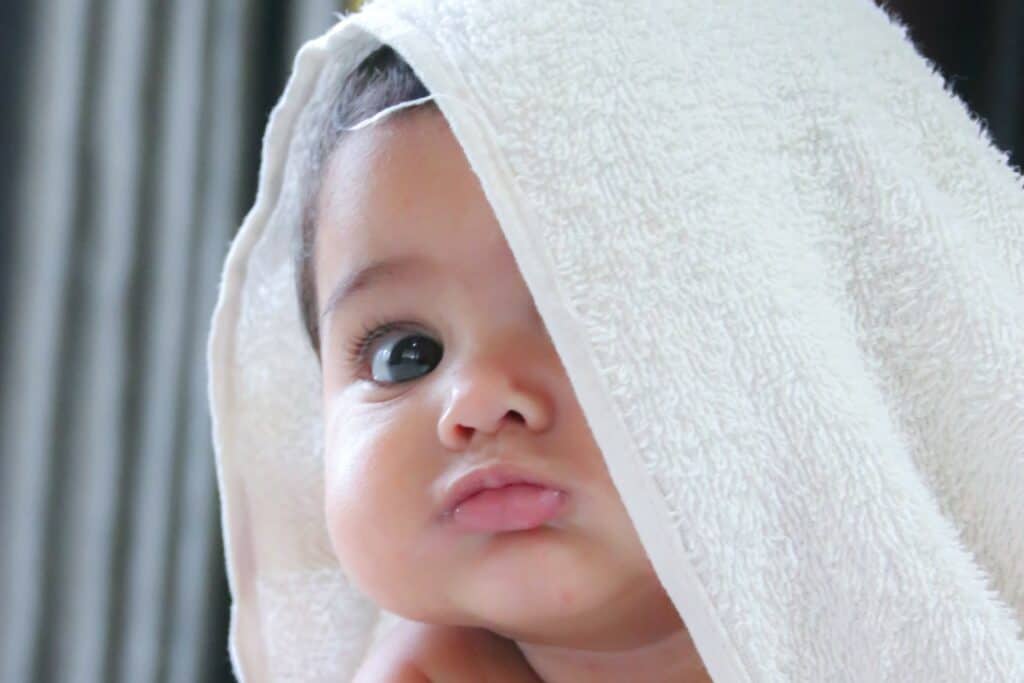
Causes of Chapped Lips
There are several factors that can contribute to chapped lips in babies, including:
- Dehydration: Babies who are not getting enough fluids may experience dry, cracked lips.
- Weather: Cold, dry weather can also cause chapped lips in babies.
- Dry skin: Babies with naturally dry skin may be more prone to chapped lips.
- Exposure: Babies who spend a lot of time outdoors or in dry environments may be more likely to develop chapped lips.
- Teething: Teething can cause excess drooling, which can lead to chapped lips.
- Dry and cracked: Babies who suck on their lips or have a habit of licking their lips may develop chapped lips.
To prevent chapped lips in babies, parents should ensure that their baby is getting enough fluids, especially during hot weather or when they are sick. Using a humidifier in the baby’s room can also help to keep the air moist and prevent chapped lips.
When treating chapped lips, parents should avoid using any products that contain fragrances or other irritants. Instead, they should opt for gentle, natural products such as petroleum jelly or coconut oil. Additionally, parents should avoid picking at or peeling off any dry skin on the baby’s lips, as this can lead to further irritation and discomfort.
Overall, chapped lips in babies can be prevented and treated with proper care and attention. By understanding the causes of chapped lips, parents can take steps to keep their baby’s lips soft and healthy.
Prevention and Treatment
Preventing Chapped Lips
Preventing chapped lips in babies is the best approach to avoid the discomfort and pain associated with dry and cracked lips. Here are some tips to prevent chapped lips:
- Keep your baby hydrated: Ensure that your baby is well-hydrated by feeding them frequently, especially during hot weather or when they are sick.
- Use a humidifier: During the winter months, the air inside the house can become dry, which can lead to chapped lips. A humidifier can help to add moisture to the air and prevent chapped lips.
- Protect from the sun: Exposure to the sun can cause dryness and chapping of the lips. Use a baby-friendly sunscreen with an SPF of at least 15, and cover your baby’s lips with a scarf or hat when outside.
Treating Chapped Lips
If your baby’s lips are already chapped, there are several things you can do to relieve the discomfort and promote healing:
- Moisturize: Apply a baby-friendly lip balm or petroleum jelly to your baby’s lips several times a day to keep them moisturized.
- Avoid licking: Licking the lips can make them even drier, so discourage your baby from licking their lips.
- Use a soft cloth: Gently wipe your baby’s lips with a soft cloth dipped in lukewarm water to remove any crusts or debris.
- Consult a doctor: If your baby’s lips are severely chapped or bleeding, or if they have a fever or other symptoms, consult a doctor for further treatment.
In summary, preventing chapped lips is the best approach, but if your baby’s lips do become chapped, there are several things you can do to promote healing and relieve discomfort. Keep your baby well-hydrated, use a humidifier during dry weather, protect from the sun, and moisturize regularly with a baby-friendly lip balm or petroleum jelly.
Role of Feeding in Chapped Lips
Chapped lips are a common issue in babies, and parents often wonder if they can use chapstick to soothe their baby’s dry lips. While chapstick may provide temporary relief, it’s important to address the underlying cause of chapped lips to prevent them from recurring. One factor that can contribute to chapped lips in babies is their feeding method.
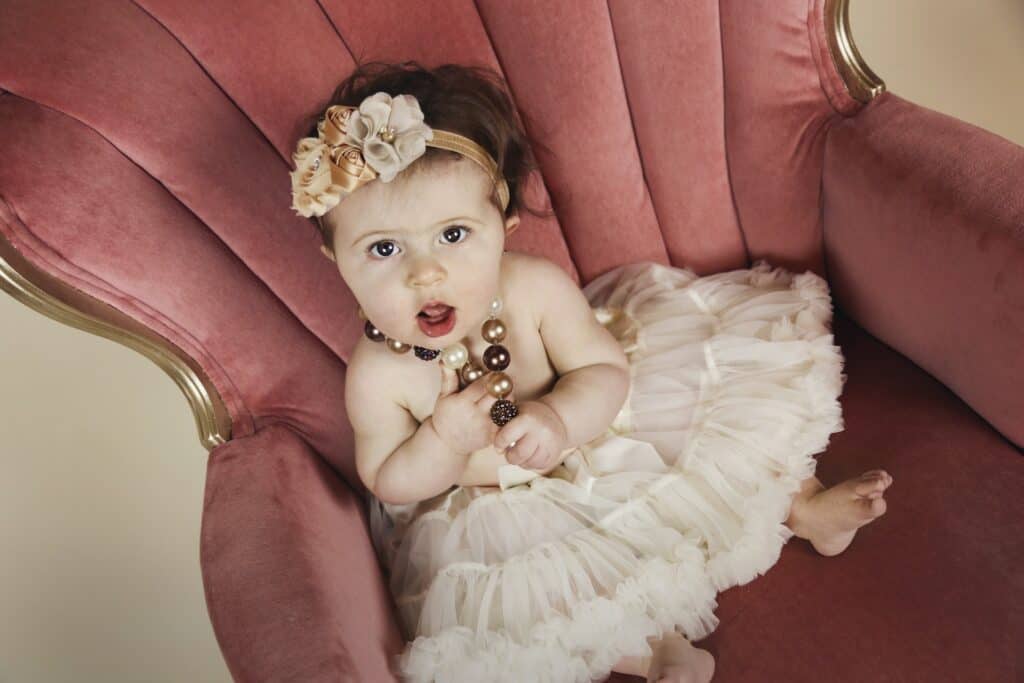
Breastfeeding and Chapped Lips
Breastfeeding is the ideal way to nourish a baby, but it can also contribute to chapped lips. When a baby breastfeeds, their lips can become dry due to the suction required to extract milk from the breast. Additionally, the composition of breast milk can change depending on the mother’s diet, which can affect the moisture levels of a baby’s lips.
To prevent chapped lips in breastfed babies, parents can try the following:
- Ensure the baby is latching correctly to minimize suction on the lips
- Apply a lanolin-based nipple cream to the mother’s nipples to moisturize the baby’s lips during feeding
- Offer the baby frequent feeding sessions to prevent prolonged periods of dryness
Formula Feeding and Chapped Lips
Formula feeding can also contribute to chapped lips in babies. Some formulas contain ingredients that can dry out a baby’s lips, and the act of sucking on a bottle can also cause friction and dryness.
To prevent chapped lips in formula-fed babies, parents can try the following:
- Choose a formula that is gentle on the skin and lips
- Ensure the bottle nipple is the appropriate size and shape for the baby’s mouth to minimize friction
- Use a bottle with a venting system to reduce the amount of air the baby ingests, which can contribute to dryness
Overall, feeding plays a role in the development of chapped lips in babies. By taking steps to address the underlying cause, parents can help soothe their baby’s dry lips and prevent them from recurring.
Choosing the Right Lip Balm for Babies
When it comes to taking care of a baby, parents want to ensure that they are using the right products for their little one’s delicate skin. One common question that parents have is whether or not it is safe to use lip balm on their baby’s lips. The answer is yes, but it is important to choose the right lip balm.
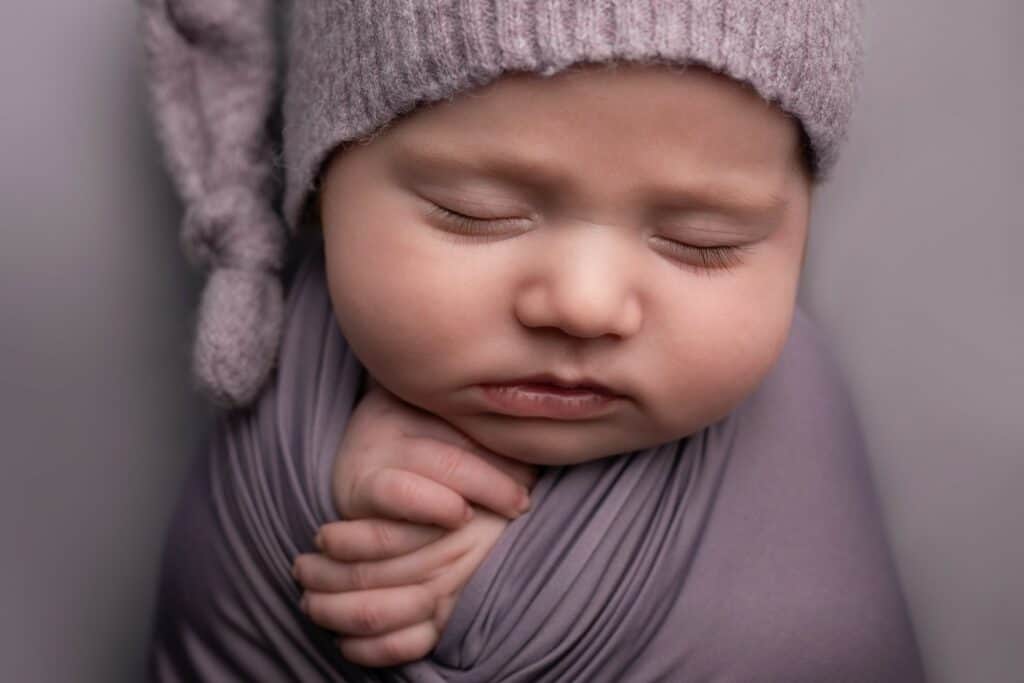
Ingredients to Look For
When selecting a lip balm for a baby, it is important to look for products that contain natural and organic ingredients. Some good options include:
- Beeswax: This natural ingredient helps to soothe and protect the lips.
- Coconut oil: This oil is a great moisturizer and helps to protect the skin’s natural barrier.
- Shea butter: This ingredient is rich in vitamins and helps to nourish and protect the skin.
Ingredients to Avoid
There are also some ingredients that parents should avoid when selecting a lip balm for their baby. These include:
- Menthol: This ingredient can be irritating to a baby’s sensitive skin.
- Fragrances: These can be harsh and may cause an allergic reaction.
- Petroleum jelly: This ingredient can create a barrier on the skin that may trap in moisture and cause irritation.
- Parabens: These preservatives have been linked to health concerns and should be avoided.
Overall, when selecting a lip balm for a baby, it is important to choose a product that is gentle and free from harsh chemicals. By selecting a natural and organic lip balm, parents can help to protect their baby’s delicate skin and keep their lips soft and moisturized.
Consulting a Pediatrician
When it comes to the health of a child, it’s always best to consult with a pediatrician before making any decisions. This includes whether or not to use chapstick on a baby. A pediatrician can provide professional advice and guidance based on the child’s specific needs and medical history.
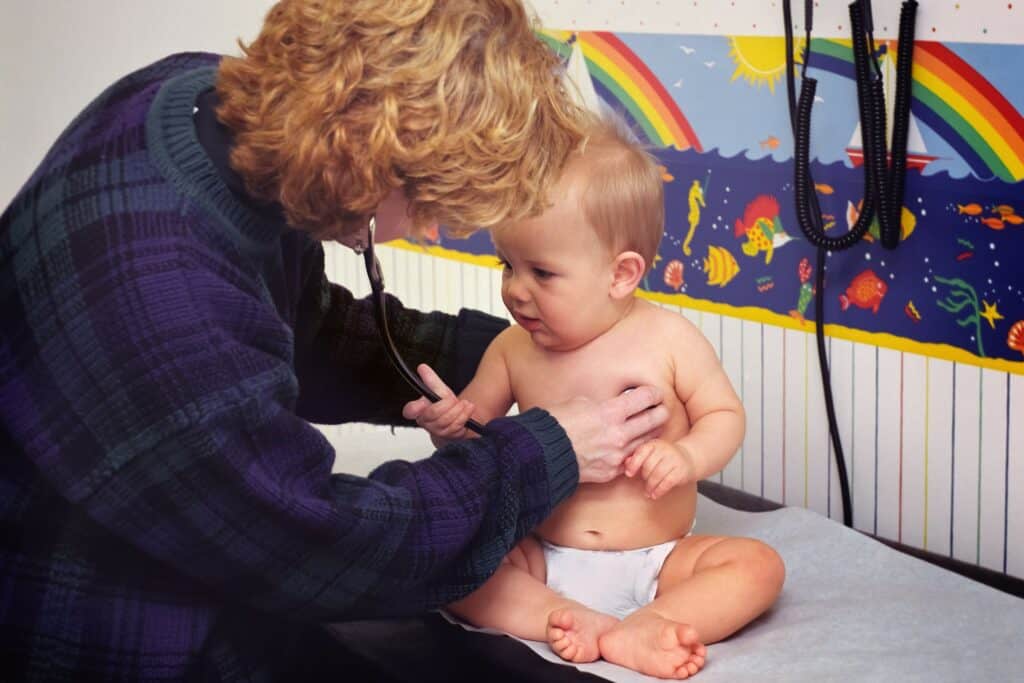
If a baby is experiencing pain or redness around their lips, it’s important to bring them to a pediatrician for evaluation. These symptoms could be a sign of an infection or other underlying condition, such as Kawasaki disease. In these cases, a pediatrician may recommend a specific treatment plan that may or may not include the use of chapstick.
When it comes to infants, it’s important to be cautious with any products that come into contact with their skin. Some chapsticks may contain ingredients that could be harmful to babies, such as fragrances or flavors. A pediatrician can recommend safe and effective products that are appropriate for a baby’s delicate skin.
Overall, it’s best to consult with a pediatrician before using any products on a baby, including chapstick. A pediatrician can provide expert guidance and ensure that the child’s health and well-being are protected.
Alternative Remedies
There are several alternative remedies that can be used instead of chapstick on a baby. These remedies are natural, safe, and effective. Here are two options:
Using Natural Oils
Natural oils can be used to moisturize a baby’s lips. Some good options include coconut oil, olive oil, and lanolin. These oils are safe for babies and can help to soothe dry, chapped lips.
Coconut oil is a popular choice because it is easily absorbed by the skin and has antimicrobial properties. Olive oil is another good option because it is rich in antioxidants and has anti-inflammatory properties. Lanolin is a natural oil that is extracted from sheep’s wool. It is commonly used in nipple creams and is safe for babies to ingest.
To use natural oils on a baby’s lips, simply apply a small amount to the lips and gently massage in. Be sure to use a clean finger or cotton swab to avoid introducing bacteria to the lips.
Using Nipple Cream
Nipple cream can also be used as an alternative to chapstick for babies. Nipple cream is designed to soothe and moisturize sore nipples during breastfeeding, but it can also be used to moisturize a baby’s lips.
Nipple creams typically contain lanolin, which is a natural oil that helps to moisturize and protect the skin. Some nipple creams also contain other natural ingredients like coconut oil or shea butter.
To use nipple cream on a baby’s lips, simply apply a small amount to the lips and gently massage in. Be sure to use a clean finger or cotton swab to avoid introducing bacteria to the lips.
Overall, natural oils and nipple cream are safe and effective alternatives to chapstick for babies. They can help to soothe and moisturize dry, chapped lips without exposing the baby to any harmful chemicals or ingredients.
Potential Risks and Concerns
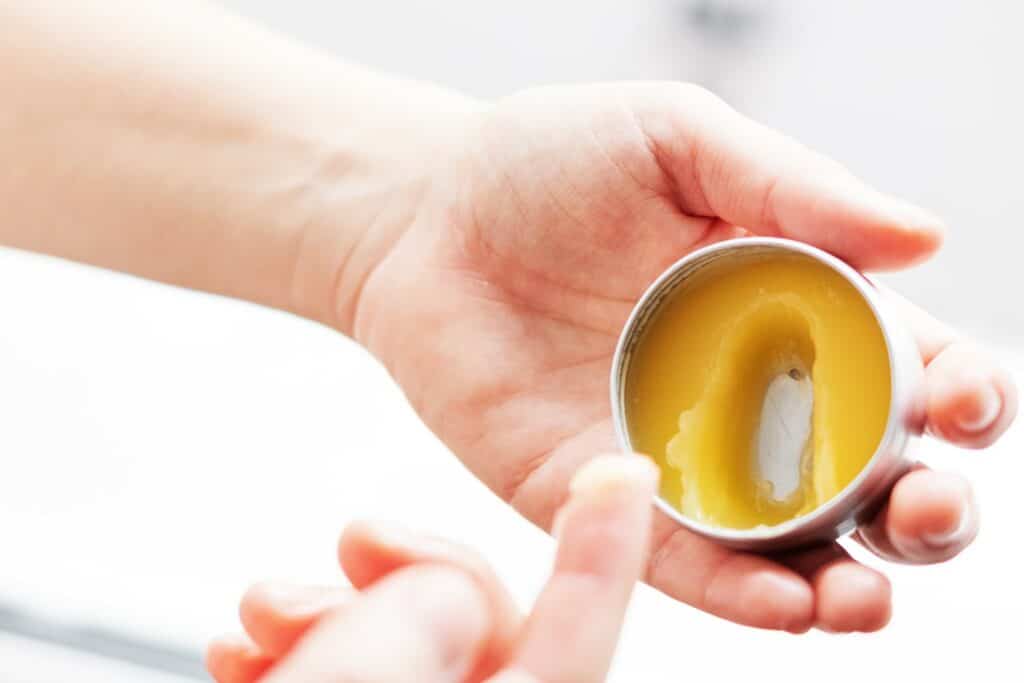
Ingesting Lip Balm
One of the potential risks of using chapstick or lip balm on a baby is the possibility of ingestion. Babies tend to put everything in their mouths, and if they ingest lip balm, it can be harmful. Some lip balms contain ingredients that can be toxic if ingested, such as petrolatum, menthol, and salicylic acid.
Parents should always supervise their babies when using lip balm and ensure that the product is out of reach when not in use. If a baby ingests lip balm, it is important to contact a healthcare provider immediately.
Skin Irritation
Another concern with using lip balm on a baby is the potential for skin irritation. Some babies may have sensitive skin or skin conditions such as eczema, which can be exacerbated by the use of lip balm.
Parents should test a small amount of lip balm on a small area of their baby’s skin before applying it to their lips. If there is any sign of redness, itching, or swelling, they should discontinue use immediately.
It is also important to choose a lip balm that is specifically formulated for babies or children, as these products are typically free of harsh chemicals and fragrances that can irritate delicate skin.
Overall, while using lip balm on a baby can be helpful in preventing dry, chapped lips, parents should be aware of the potential risks and take appropriate precautions to ensure their baby’s safety and comfort.
Conclusion
In conclusion, it is not recommended to use regular chapstick on a newborn or infant due to the potential risks of ingestion and allergic reactions. Newborns are delicate and have sensitive skin, and their lips are no exception. It is important to keep their lips moisturized, but using a specially formulated lip balm for babies is a safer option.
If a newborn does have chapped lips, it may be due to their new life outside the womb and exposure to dry air. Providing adequate humidity in the environment and using a baby-safe lip balm can help alleviate this issue.
Overall, it is important to consult with a pediatrician before using any products on a newborn or infant, including lip balms. They can provide personalized recommendations and ensure that the product is safe for the baby.
Frequently Asked Questions
Is it safe to put lip balm on a newborn’s lips?
It is generally not recommended to put lip balm on a newborn’s lips, as they may accidentally ingest it. Moreover, their skin is very delicate and sensitive, and some lip balms may contain ingredients that could irritate their lips. It is best to consult with a pediatrician before using any products on a newborn’s skin.
What are some natural remedies for treating dry lips on a baby?
Some natural remedies for treating dry lips on a baby include applying a small amount of breast milk, coconut oil, or petroleum jelly on their lips. It is important to avoid licking or wetting their lips excessively, as this can further dry them out.
How can I prevent my baby’s lips from getting chapped?
To prevent your baby’s lips from getting chapped, make sure they are adequately hydrated by offering them frequent feedings and water, if they are old enough. Avoid exposing them to harsh weather conditions, such as extreme cold or wind, and use a humidifier in their room to keep the air moist.
What are some baby-safe lip balms available in the market?
Some baby-safe lip balms available in the market include Burt’s Bees Baby Bee Lip Balm, Aquaphor Baby Healing Ointment, and Earth Mama Organics Baby Lip Balm. However, it is recommended to check the ingredients list and consult with a pediatrician before using any product on a baby’s skin.
Can I use Vaseline on my newborn’s lips?
Yes, Vaseline can be used on a newborn’s lips, as it is a safe and effective moisturizer. However, it is important to use a small amount and avoid applying it too frequently, as this can clog their pores.
What should I do if my baby’s chapped lips are bleeding?
If your baby’s chapped lips are bleeding, it is important to seek medical attention immediately. In the meantime, avoid applying any products on their lips and gently clean the area with a damp cloth.
Related Posts:

Iesha is a loving mother of 2 beautiful children. She’s an active parent who enjoys indoor and outdoor adventures with her family. Her mission is to share practical and realistic parenting advice to help the parenting community becoming stronger.
